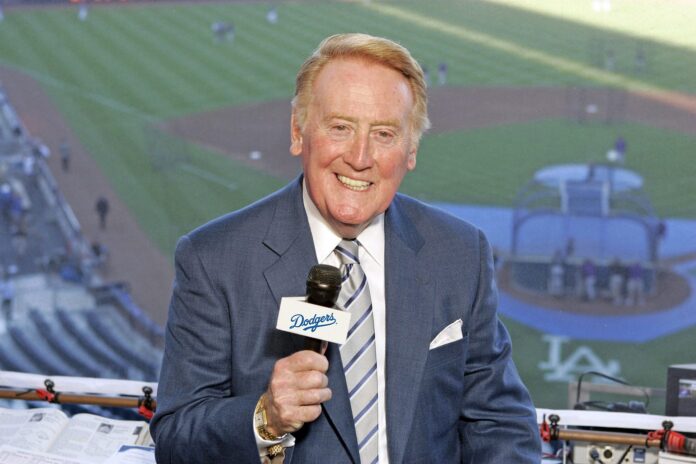Just weeks remain before the start of another baseball season, evoking long-held memories of voices that impregnated mild summer nights as well as the ears of young listeners trying to fetch far-away signals on transitor radios.
Announcers then were giants of the game who personified their teams, didn’t retire when their knees buckled, and seldom sold themselves to other clubs in publicized bidding wars.
For the most part, they were matinee idols who did much of their work by daylight – at least before Charlie Finley floated the idea of night World Series games, a novelty that began in 1971.
Because radio broadcasters had to paint word pictures for listeners, they were artists, special breeds who addressed their microphones as if in conversation with blind listeners. It was their job to make listeners experience the action even though they couldn’t see it.
Virtually all of the great ones are gone today but their memories and their voices never fade.
Excluding players who became announcers – never a “sound” idea in the first place — these were the best of them:
1. Vin Scully – He spent six decades with the Dodgers, both in Brooklyn and Los Angeles, working alone even in his later years. The poet laureate of the broadcast booth, he was a master of the understatement, knowing when to talk, what to say, and when to say nothing and let the crowd noise speak for him.
2. Ernie Harwell – After breaking in with Brooklyn, he worked for the Giants, Orioles, and Tigers, spending most of his best years in Detroit. An author, songwriter, and baseball historian, the cerebral Harwell, like Scully, was one of the true gentlemen of the game. And his voice was a gift from heaven.
3. Milo Hamilton – During a broadcast career that lasted 63 years, he covered the Browns, Cards, White Sox, Braves, Pirates, Astros, and Cubs twice, landing behind the mic when Hank Aaron broke Babe Ruth’s home run record. His commentary for Atlanta radio outlet WSB is invariably paired with the video whenever it’s shown even though Scully was announcing for the Dodgers.
4. Bob Prince – An unforgettable and often controversial character, he was so beloved by the Pittsburgh fans that Hamilton had trouble replacing him. He had an unmistakable voice, especially when calling for “the bloop and the blast” that could put the Pirates back in the game.
5. Red Barber – A Mississippi native whose initial reaction to Jackie Robinson was negative, he changed his tune while working for Branch Rickey in Brooklyn, later moving across town to the Yankee booth. “The Old Redhead” was a baseball historian whose broadcast career began with Larry MacPhail’s Reds when he broadcast the first game he ever attended.
6. Harry Kalas – Known for his deep, leatherly voice, he worked for the Phillies from 1971-2009 after launching his major-league career with the Houston Astros. He broadcast the first game in the Astrodome, the first game at Veterans Stadium, and the first game at Citizens Bank Park.
7. Russ Hodges – No relation to Gil, he was in the New York Giants’ radio booth when Bobby Thomson hit “the shot heard ‘round the world” on Oct. 3, 1951. He said “The Giants win the pennant!” nine times without giving the 5-4 score because he saw the bedlam on the field but lost his scoresheet, which blew out the open window of the broadcast booth.
8. Howie Rose – Still active as the radio voice of the New York Mets, this lifelong fan used to sit in the stands with a tape recorder and “announce” games. Apparently, it was good training, as the mild-mannered Rose became a baseball historian who later broadcast many of the game’s big moments.
9. Skip Caray – The son of Harry and father of Chip was known for his ascerbic commentary, often saying things that aggravated and exasperated the producers in the truck. One example, when the Braves were on the wrong end of a losing game, was “Don’t tell our sponsors but you can go ahead and walk your canine.” On the air for Sid Bream’s pennant-winning slide in 1992, he formed a long-lasting broadcast booth trio with Pete Van Wieren and Ernie Johnson, Sr.
10. Joe Castiglione – After more than 40 years in the Boston Red Sox booth, he’s expanded to writing and lecturing about baseball. Because of his long tenure, he’s become as much of an institution in Boston as Carl Yastrzemski.

